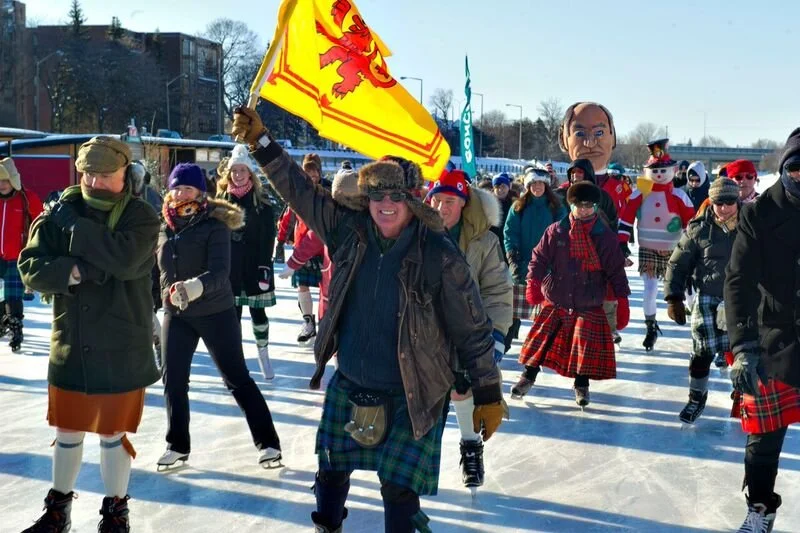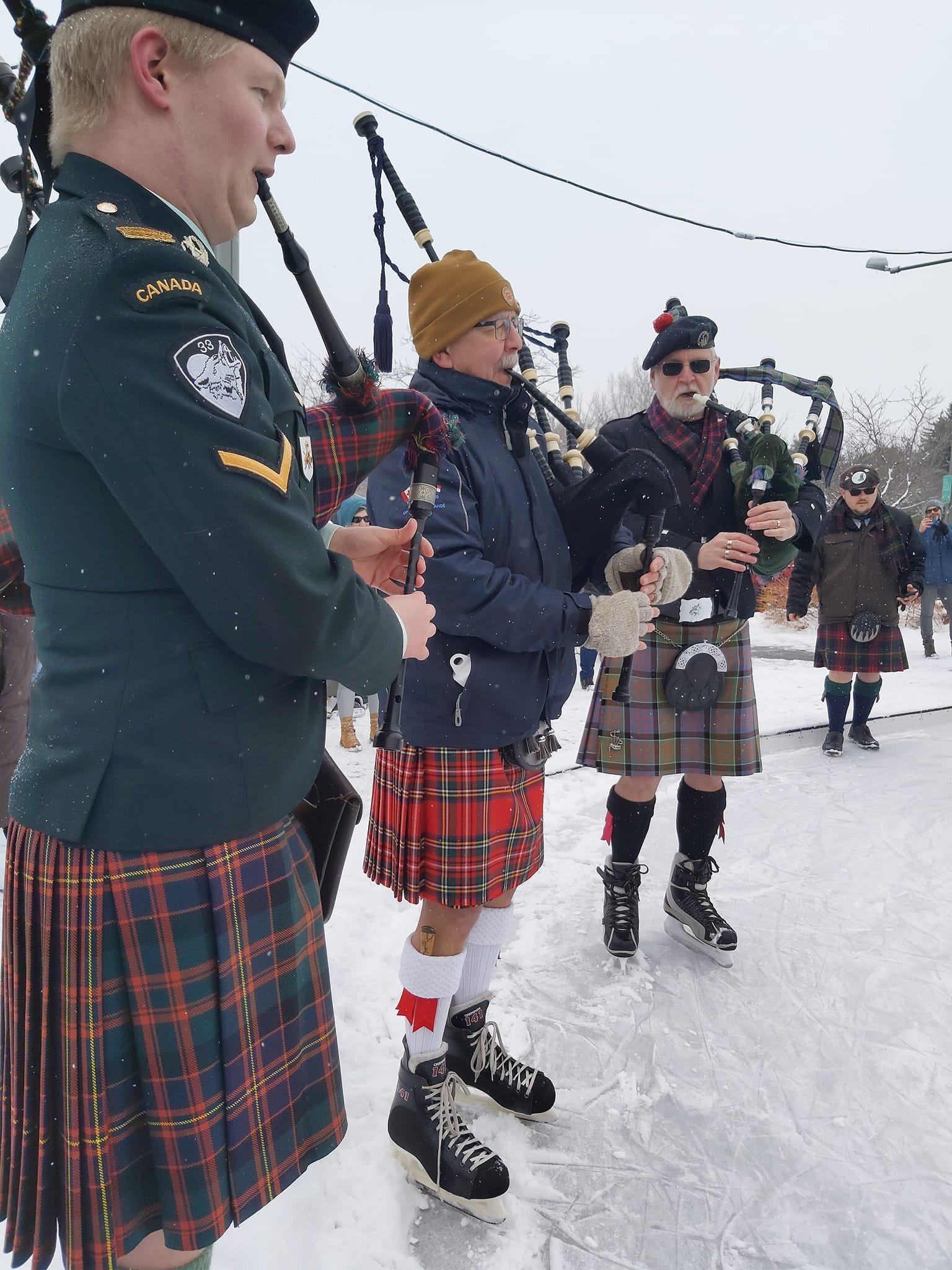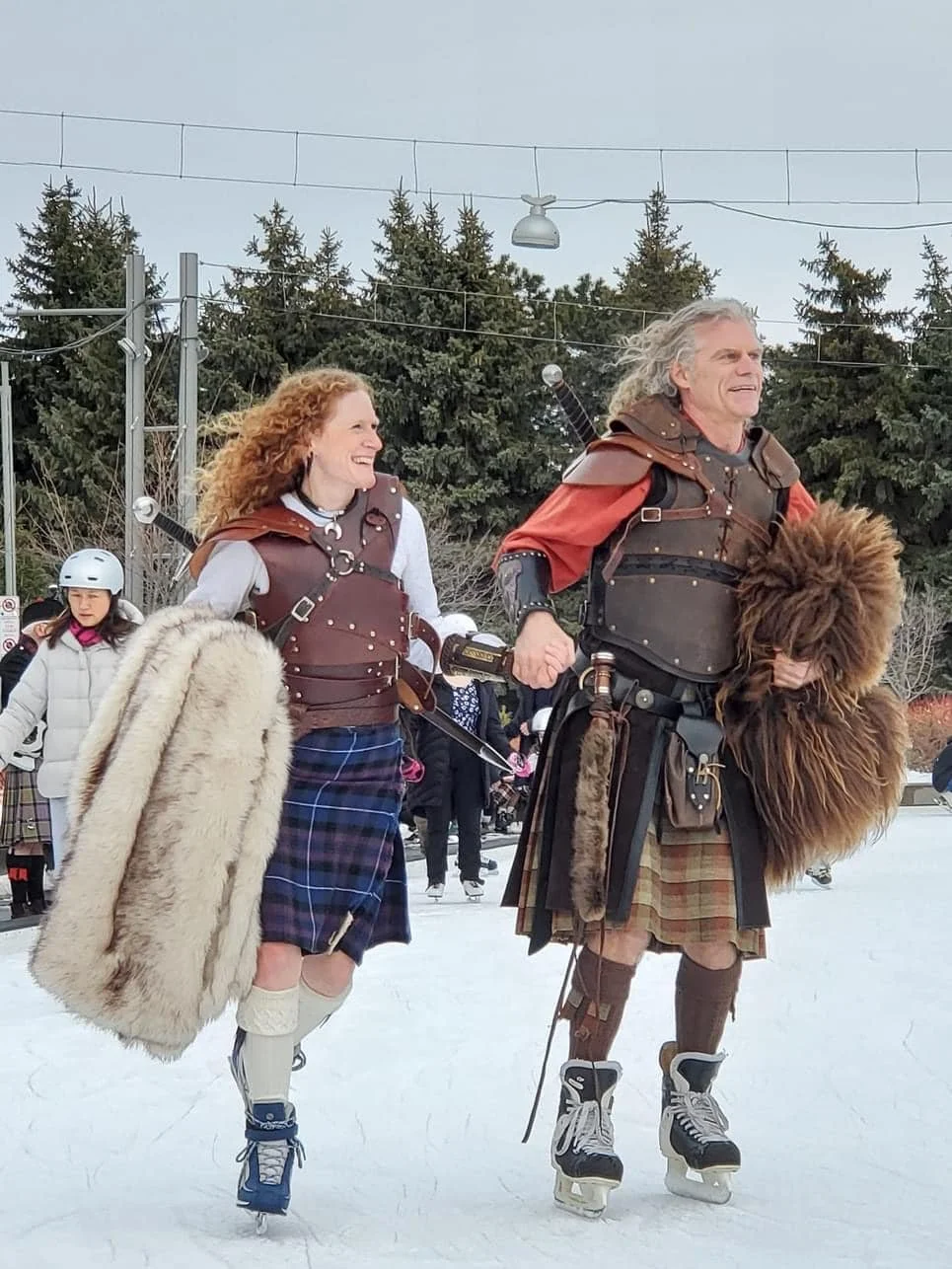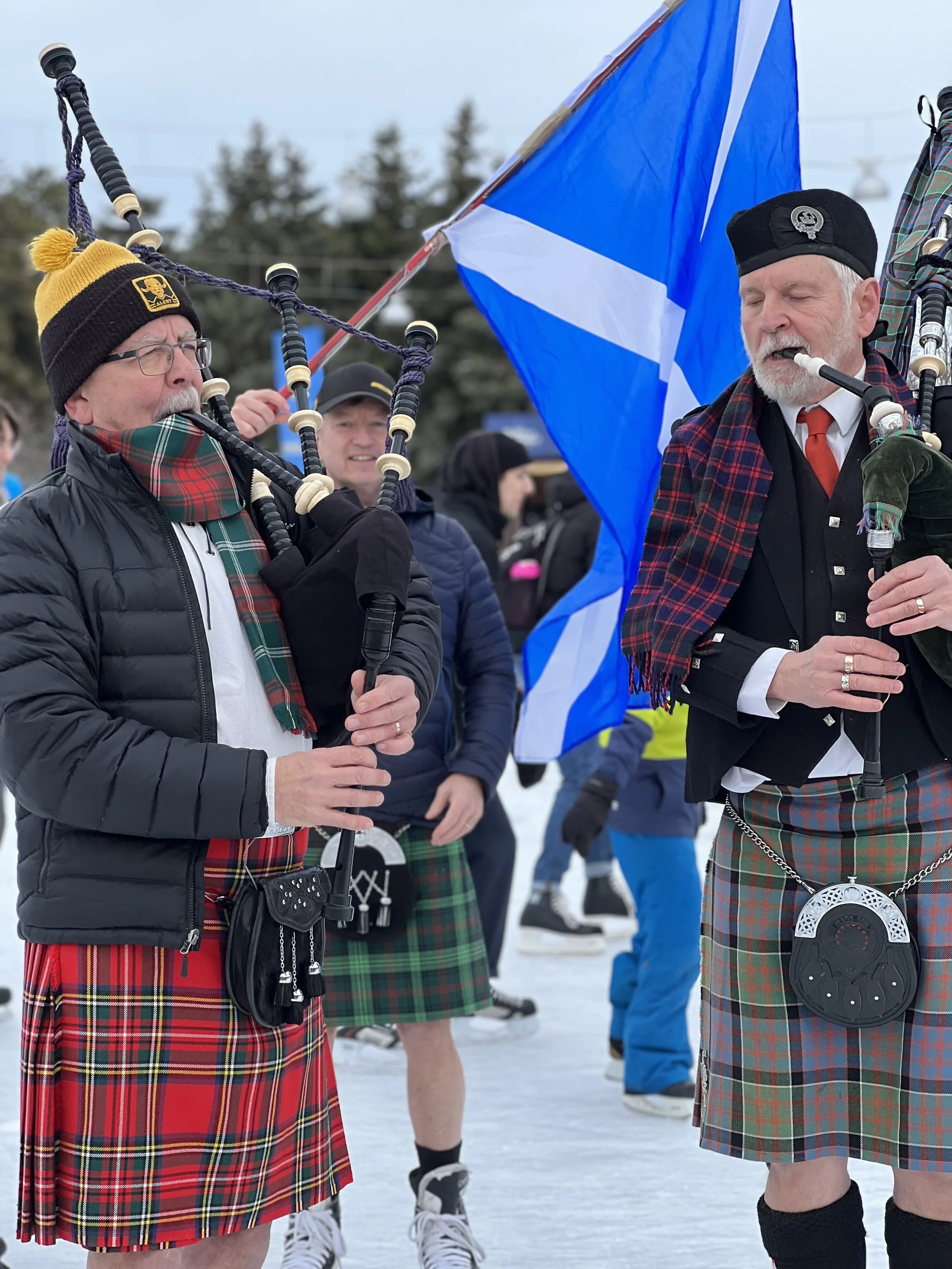Ten Years of Kilt Skate Capitals
/With the 2024 kilt skate season wrapped up, and the ice all melted, it’s time to look back on a ten-year legacy of bragging rights as the Kilt Skate Capital of Canada. What does it take to become a kilt skate capital? Over the 10 years different communities have found their own way to distinguish themselves.
In 2015 no city was designated as a Kilt Skate Capital because no one thought that kilt skating would turn out to be as popular as it has become. But without a doubt the event put on that year by the Scottish Society of Ottawa was outstanding in the number of skaters who participated (around 200); a picturesque venue (the Rideau Canal Skateway); on-stage entertainment of pipers, dancers and singers; opening ceremonies that included mayors, ice hogs, and birthday cakes; enthusiastic coverage by local media; and even an ice sculpture featuring a kilted Sir John A. Macdonald on skates.
In 2016 the original five kilt skate cities returned for another season. Kilt skates were organized in Montreal, Ottawa, Winnipeg and Calgary, but it was Saskatoon that was, for the first time, officially declared the kilt skate capital. The Saskatoon Highland Dancing Association brought out skaters young and young-at-heart — including the first known instance of a piper piping as he skated. They had excellent media interviews. But the icing on the cake was the opportunity to participate in a snowball fight across the street where the people of Saskatoon earned another bragging right that day: the Guinness world record for the world’s largest snowball fight.
The 2017 bragging rights as the Kilt Skate Capital of Canada went to Calgary, where the St. Andrew-Caledonian Society took over as the organizer of the event for the first time and hosted a skate that brought out the dancers, the choirs, the pipers, the skaters, and Harry the Hound — the mascot of the Calgary Flames.
Toronto hosted its second kilt skate in 2018 at Nathan Phillips Square, organized by the Sons of Scotland. The crowds came out — both skaters and onlookers on a sunny winter day. Such energy — and it helped make Toronto the 2018 Kilt Skate Capital of Canada.
The kilt skate capital bragging rights in 2019 went to the Township of North Glengarry held in Maxville, ON. The previous year, Maxville saw the first kilt skate to be held indoors in a hockey arena. For 2019, the organizers once again combined skating with a social and a ceilidh. That year, local army cadets came out in numbers. A video of them skating in march tempo to the skirl of the pipes went viral on Facebook.
The following year, the 2020 kilt skate laurels went to the Township of South Glengarry for their huge success in combining a an indoor kilt skate and ceilidh with an outdoor winter carnival, complete with sledding, sleigh rides, and marshmallow roasts.
Just a couple of weeks after the South Glengarry kilt skate, the world shut down and during the Covid pandemic it doubtful whether kilt skating would be possible under public quarantines. But a zoom meeting of kilt skate organizers across the country came up with a new idea: a Home Edition kilt skate where individuals and families were invited to send their photos of their socially-distanced event on their own pond, river, canal or outdoor rink. The response from across the country was phenomenal, But nowhere more than in Winnipeg which earned the 2021 Kilt Skate Capital of Canada. This was also the year when the prestige of being named kilt skate capital was celebrated in the Manitoba legislature.
After that, partner communities seemed to compete more vigorously for bragging rights. No one more than the Scottish Society of Ottawa. The organizer of the first kilt skate in 2015 was celebrating its tenth anniversary as an organization in 2022. The SSO pulled out all the stops in putting together their usual great event, but what really put Ottawa over the top as the 2022 Kilt Skate Capital of Canada was the continued enthusiasm of local individuals and families who sent their photos and videos as part of the Home Edition.
The 2023 kilt skate crown returned to Winnipeg — this time because of a well publicized, well run community event that brought skaters out onto the Riley Duck Pond one a bright sunny day perfect for skating.
So this brings us to 2024 and a kilt skate season that saw events planned in 13 communities, of which three had to be cancelled. Among the 10 who were able to host events, there were many standout features. Special mention to Pembroke ON for its first-ever kilt skate that not only combined outdoor skating and indoor social elements, but also raised money for charity.
In a very tight field of community kilt skates from Antigonish to Calgary, there were several events that deserve to be celebrated, but this year the laurels as the 2024 Kilt Skate Capital of Canada go to Fergus ON. For several years now, Elizabeth Bender and her team at the Fergus Scottish Festival have put on an excellent kilt skate event. A Fergus kilt skate is always colourful with big crowds, lots of tartan, and flags flying. Fergus benefits from great media coverage in the community, including the Wellington Examiner. Fergus always has little added touches — such as transferable tattoos and lots of goodies. In addition to the pipe band, this year, the musical offering was augmented by a rinkside ceilidh. Have a look at the video they put together and see how much fun everyone is having. Congratulations, Fergus!













































